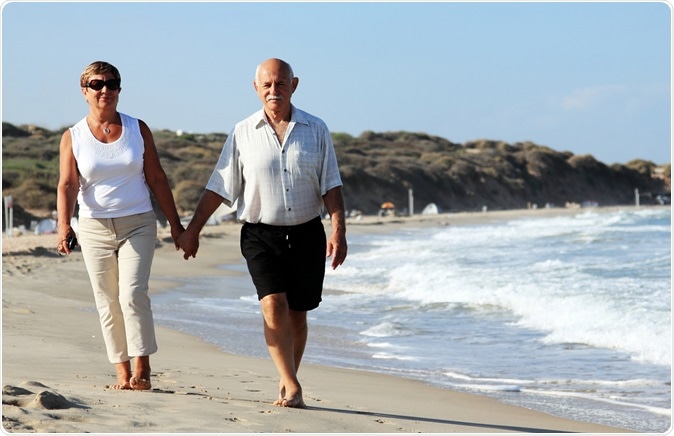A new study has found that adults aged 40 to 60 in England are not getting any notable physical activity. Only 4 in 10 individuals are walking less than 10 minutes continuously each month at a brisk pace. This means that they are missing the health benefits offered by routine physical exercise say the Public Health England in their evidence review.

Image Credit: Dubova / Shutterstock
The PHE researchers noted that over time the lifestyles of persons in this age group have changed significantly. For example the people living now are 20 percent less active than those living in the 1960’s. Individuals on an average walked 15 miles more in a year compared to now – two decades later. There is little time for exercise and physical activity with the rise in the sedentary lifestyles, find the experts.
PHE thus has launched a “One You” physical activity campaign. This would encourage adults to incorporate 10 minutes continuous brisk walking in their day to improve their health. This is aimed at persons who lead a low activity lifestyle and are generally inactive. The ‘Active 10’ app has been developed in order to show how much brisk walking a person is doing each day and also helps suggest how more exercise can be incorporated into the lifestyles of individuals. The Active 10 app came into being from the collaboration of PHE, The University of Sheffield, Sheffield Hallam University and the National Centre for Sport and Exercise Medicine.
At least a single 10 minute brisk walk a day can help reduce the risk of early death by 15%, studies have shown. The recommendations suggest at least 150 minutes of moderate to vigorous exercise each week. This 10 minute brisk walk can provide a significant contribution to that. It can reduce the risk of diabetes by 40%, risk of cardiovascular disease by 35%, risk of dementia by 30% and risk of cancers by 20%. Walking is one exercise that requires no skills or equipment or facilities and is thus most accessible and acceptable says the PHE. At present this lack of physical activity leads to at least one of the six deaths in the UK and is a direct contributor of over £0.9 billion per year in expenditure of the NHS, evidence shows.
Dr Jenny Harries, Deputy Medical Director at PHE said that it is understandable that busy day lives of most individuals provide them with little time for exercise. Small changes including walking to shops instead of driving, going for a brisk 10 minute walk during lunch breaks, can make a big difference in health he added. The Active 10 app is a free and easy way to include these changes in one’s life. It combines walking intensity and time and not only just distances or steps making it different from other fitness apps. He added that this app has already helped 50,000 adults to become more active.
According to Professor Sir Muir Gray, Clinical Adviser for the Active 10 app and the One You campaign, a 10 minute brisk walk is a doable goal that can be achieved and once achieved helps reduce the risk of death significantly. The Active 10 app has been endorsed by the Royal College of General Practitioners (RCGP) and is being recommended by GPs across the country to their patients.